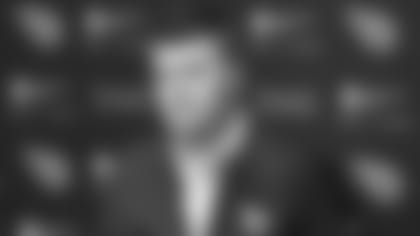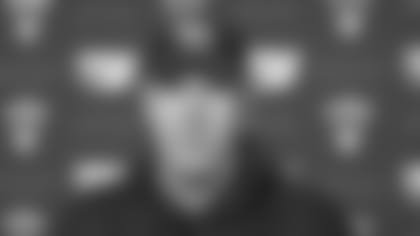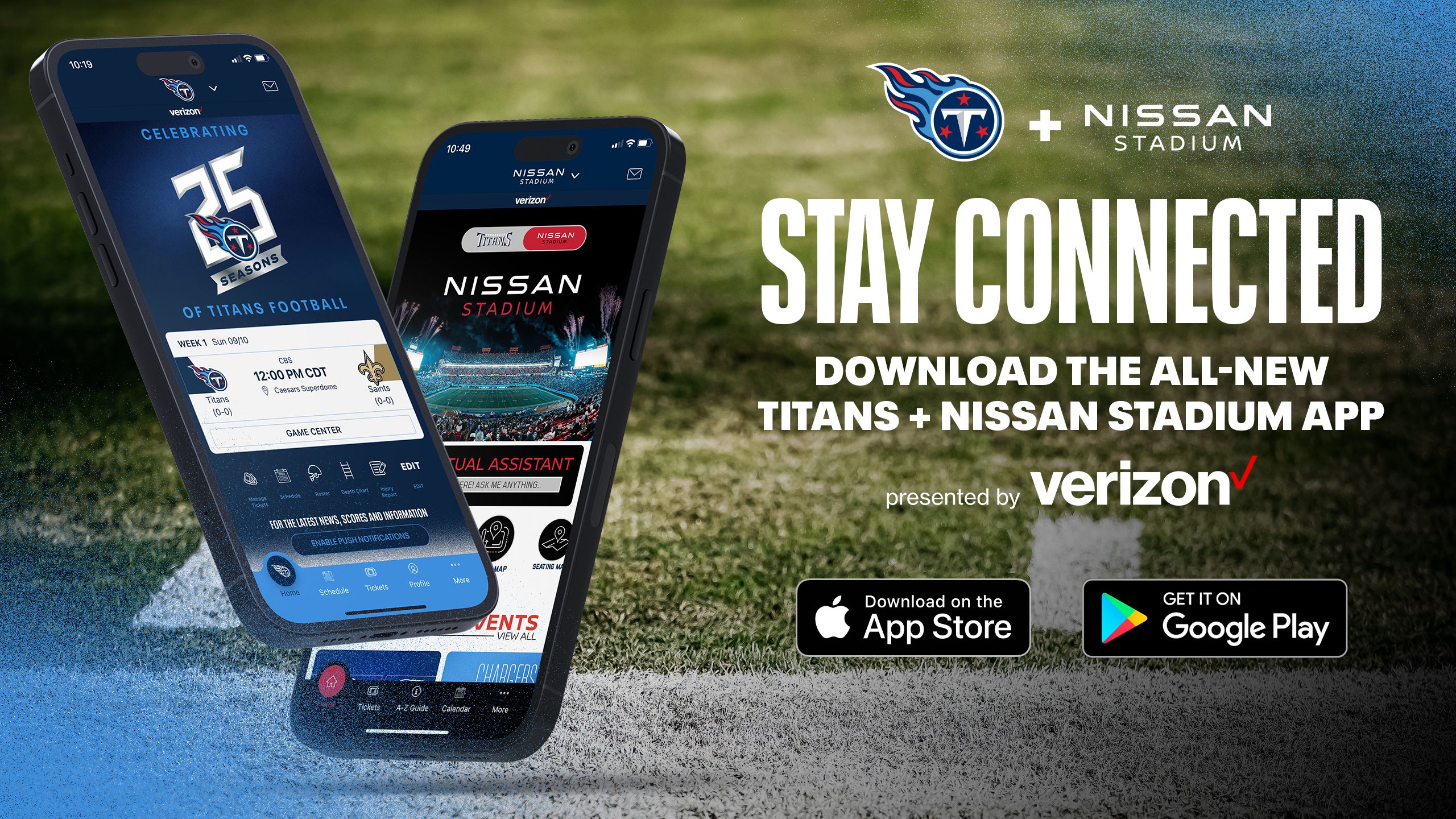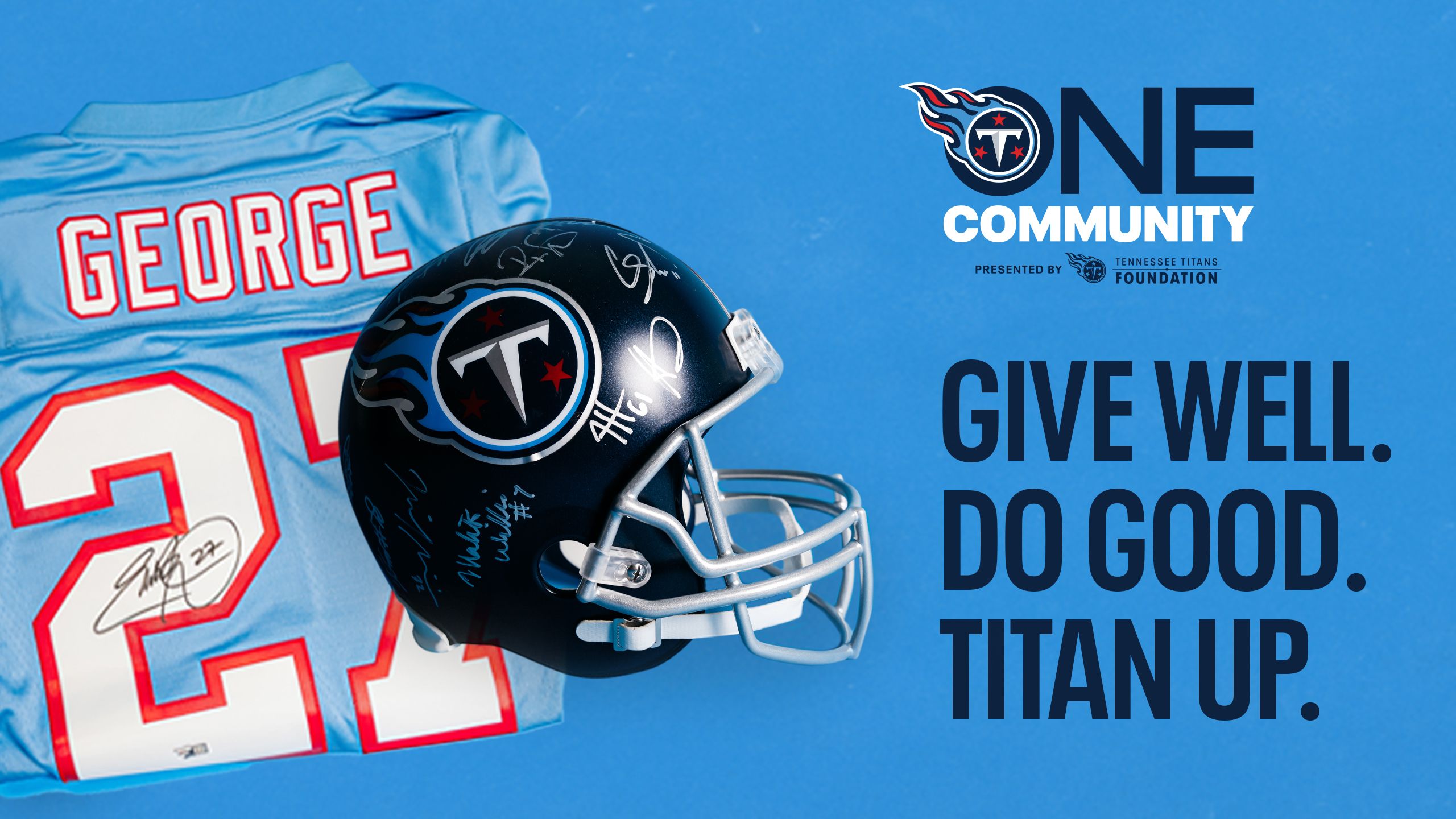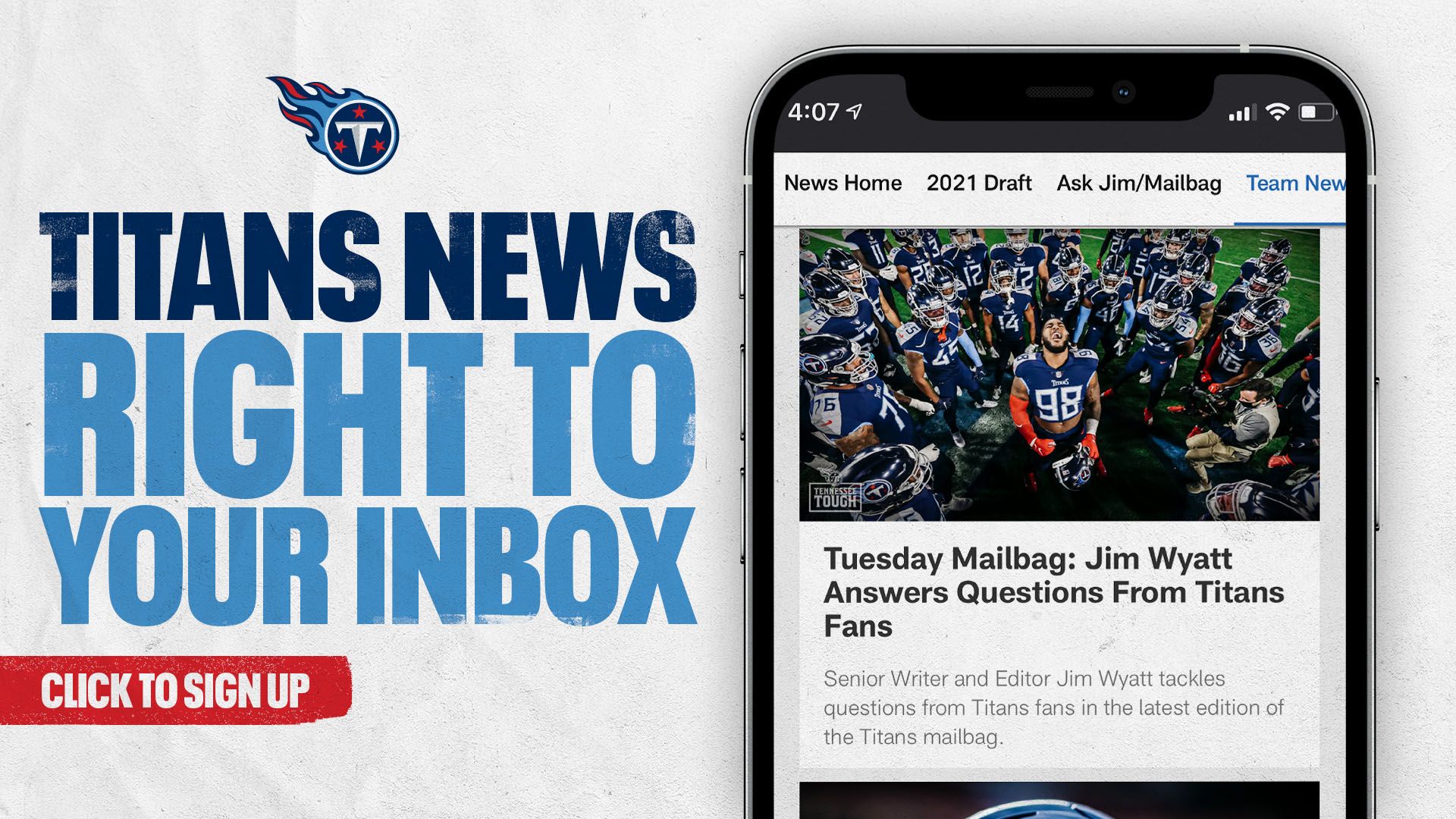**
BENJI OLSON, MARCH 27, 2008**

(on what he's most proud of in his career)
I'm probably most proud of just making it this long. I know when I came out of college after my sophomore year, I just had back surgery back then. Part of the reason I decided to come out early was I didn't know how many years I had left on my back. The fact that I've made it this long dealing with my back, and the last couple of years it's gotten chronically worse and harder to deal with…just hanging in there and being able to go out there and fight through back pain. It's just a blessing to be able to play in the NFL. I'm just happy that I was able to stay here with this great franchise with great coaches -- Coach Fisher and 'Munch' (Mike Munchak). 'Munch' is probably the best o-line coach in the league. He made the job easier by what he taught me and I just want to thank him for that. I appreciate it. It was fun, man. It was a good ride, and now I get to save a little back for the golf course. I want to thank Tracy for supporting me over the years, helping me get my socks and shoes on Monday mornings. It's hard to let go when you devote yourself to something for so long. Most of us have been playing this game most of our lives, playing football for 20-something years. It's definitely a hard decision to step down and let go, but there are so many great friendships and so many great memories I've made over the years. It's been real fun, a great ride.
(on how long he thought he would last in the NFL)
When I came out, I was shooting for four or five years. Honestly, I was just shooting to make the team when I got here. I was just happy that these guys took a chance on me, on a guy that had just recently had back surgery and there were definitely issues about it. I'm just glad they took a chance on me and that I was able to deliver and put together a pretty good career.
(on how tough the last couple of years were physically on him)
It was really hard. As a player that loves to play the game, you want to be out there every play, every snap and do what you can to make the team successful. Last year, especially, got really hard with the back issues and it was tough not being able to go out there. I gave it my best and tried to contribute the best way I could.
(on how he feels physically now)
Dropping some weight is something that will probably help. Right now it (the back) has calmed down pretty good. I think without driving 325-pound guys around 60 times a game is going to help me a lot. I'm hoping after a year off I'm going to feel a lot better, but right now I'm feeling way better than I was at the end of the season, obviously. As you feel good in the off-season, you start thinking, 'okay, well, maybe one more year,' but Coach Fisher knows that I could barely get through camp last year. We didn't know if I was going to be able to get through the season because it was acting up so bad. I started thinking about trying one more year, let's try one more year, but I know as soon as I get back out there with the contact, and the way the game is so physical and hard on your body, I knew it would be a couple of more days and I would be right back where I was, probably.
(on if he has talked to Jason Mathews or Brad Hopkins about being at an ideal weight)
Jason and Brad have always kind of been on the lighter side. I've always been a big dude, so I would say a goal for me would be like 290, 280 if I could. When I was a senior in high school I was 285. I wasn't fat by any means. I was pretty slim, actually, for a 280 guy, which sounds pretty weird. I don't know. It's going to be a challenge, so we'll see what happens.
(on what his emotions are like as he goes through this process today)
I think it's all of the emotions. Like I said, it's tough. You've been doing something for so long, you kind of get institutionalized, I guess, and you feel like, what do I do now? You don't know what to do with yourself because you've done it so long. There is some relief because I know I'm moving on and there's no more tearing myself up thinking about what to do. It's sad because you're going to miss the guys. That's the one thing that I've gotten from the guys that have retired is the thing you miss the most is the camaraderie, the boys, hanging out and all that stuff. I'm definitely not going to miss (Steve) Watterson's workouts. I think the biggest thing I'm going to miss is playing in the games, because that's what it was all about – running out there on game day and going out there and having fun.
(on if he is happy to have seen the team through from being a Super Bowl team, to going through salary cap struggles, then making it back to the playoffs again)
It was definitely a fun experience. I was talking with Coach earlier, I got here my rookie year and I had left my junior year and I remember we were playing at Vanderbilt. Me and a couple of other rookies would go in there and there weren't enough lockers for everybody, so all of our stuff was just thrown in a pile in the middle of the locker room with no air conditioning and I just remember going, 'why did I leave early for this? I thought this was the NFL. What's going on?" But then the next year we got the new team, the new uniforms, the stadium and got to go to the Super Bowl. It was one of the greatest experiences I'll ever have, going on that run we went on for a few years when we were making the playoffs and playing well. We went through the lull, but last year was exciting to get back into the playoffs, and there's a lot to look forward to with this organization.
(on what his personal highlight was)
As my play? I had a couple of plays. 'Munch' was talking about some pulling and stuff. I had one counter where I cleaned a guy out pretty good up in Cleveland – kind of bent the guy in half. I think one of the greatest memories and best plays I'll take from my career was we were playing Buffalo in the Music City Miracle playoff game during the Super Bowl year, and there was a screen, like 'Munch' was talking about. Bruce (Matthews) and I got out and I cut-blocked a guy and the guy's leg got stuck in the ground and his leg snapped. He broke his leg. I don't remember his name. Bruce was kind of in on it too. I remember right after the play, Bruce Smith was in my face and he was just chewing me out saying, 'oh, you're going to end this guy's career.' I'm quiet and like, 'I'm sorry, I didn't mean to do it, but stuff happens.' And just remember no knowing what to say because it was my first year as a starter and I'm still a young pup. Then I remember Bruce Matthews comes in and gets in between us. Bruce isn't a big talker either, but gets in between me and Bruce Smith and starts jawing with Bruce Smith, and I just remember thinking, 'man, wow, I've got two future Hall of Famers arguing over some stuff I was involved in.' I was thinking, 'this is really great.' I just remember that. There are all kinds of memories you can take. I'm definitely going to miss it.
(on how emotional the decision was)
It's very emotional. I think going through what I did last year as far as the back pain and all that stuff was just hard. You can ask my wife. It was just hard getting up every day and coming in. I was practicing like once a week because it was so hard and painful. When I think about going through that last year, it's not really hard to make the decision emotionally because down the road it's going to hopefully pay off when my back feels better. It's a very emotionally deal retiring after doing something for so long.
HEAD COACH JEFF FISHER
(opening comments)
Good afternoon. I want to thank everyone for coming. Typically at this time of the year when we have a press conference, we are introducing a player who is going to be starting a career with us. Today we are gathered to celebrate a 10-year career, a unique career. This is a unique opportunity because this is the first time in franchise history where we're going to introduce to you a player who is retiring that has started and finished his career as a Titan (in Tennessee). Benji is the first player in franchise history to start his career as a Titan and to retire as a Titan (in Tennessee). I just want to congratulate Benji and Tracy for 10 great years. The statistics speak for themselves – his starts, nearly 160 starts; 16 starts every single year, year after year; very few games missed; the playoff opportunities. To come in here – we drafted him as a junior in 1998 as a fifth-round pick – and find his way onto the field and to become a first-time starter in '99 and go to the Super Bowl, to have a hand in so many of the 1,000-yard rushers that he blocked for, all of those things speak for themselves. I just want to personally thank Benji and Tracy again for their commitment to this organization, to his professional approach to playing, to the production and to the trust that he afforded us because we knew he was going to be there each and every week. I'm going to allow Mike [Munchak] to share a few comments now, if he will. Thank you.
OFFENSIVE LINE COACH MIKE MUNCHAK
(opening statement)
I know it is a tough day for Benji. It is hard to walk away from something you love to do. It is something he has been doing for a long time since he was eight or nine years old. That is really tough for anyone to do. When I heard today that he was going to officially retire, I started reflecting back on his career. What I thought I would do today was put together some notes and thoughts that I kind of wanted to share with you of his career. Benji's play at right guard has played a huge part in the success we have had as a team and as an offensive line over the past 10 seasons. In 1998, which was his rookie year, midway through the season one of our offensive linemen got hurt and he had his first chance to start and we were heading to up to Baltimore which was an away game and a big division game at the time. This was his first opportunity and we get the ball on the first drive backed up inside our 10-yard line. He runs out there and the crowd is going pretty nuts there. The first play we run the ball and we gain a yard I think. On second down we come out and it is pretty noisy out there and I think he thought he heard Steve [McNair] and all of a sudden he flinches and they throw the flag and we lose five yards. Now we are backed up inside the five-yard line. The next play I hear the call and it comes out and it is a pass play and I think 'oh, boy.' They call pass and I know in his mind he is thinking I can't go offsides again and he had all kinds of things going through his mind so he is late off the ball and the guy who is on him swims by real fast and sacks Steve and unfortunately he is in the end zone. So it is not only a sack, but it is a safety. We come off the field after his first three plays in the NFL and I'm thinking what do I say to this guy? So I just wait. We come off the field and we all come down to the end of the field and we all sit by each other. We get our five guys lined up, and I'm ready to say something and you know how veterans are, they want to help rookies out and they want to encourage them, so I don't know if it was [Mark] Stepnoski or [Bruce] Matthews, and he leans over and says, 'hey rook the good thing is, it can't get any worse than that.' The amazing thing was nothing else needed to be said. He found a way to put that behind him and went on to play the game. We had a lot of game to play, another 65 plays, and played really well. We won the game and I think Eddie [George] rushed for over 100 yards. That is something that some guys never overcome. In this league you are going to have your ups and downs. Here he is in that first game putting it behind him and going out and playing real well. His next season was his first offseason to train. I think Steve Watterson did a great job with him in that area with his strength and resculpting this fine body that mind you was 325 pounds at the time when he came in. He worked hard in the offseason with me with his techniques and with the line. He had a great camp that year which was 1999, so he became the starter at right guard in 1999 which a lot of you know was our Super Bowl season. He held that position for the next nine years because of his work ethic and his commitment to the field and to the weight room as hard as he worked. As Coach Fisher mentioned, he went on to start over 150 games. I think at one time he had started 85 consecutive games without missing a game which is unbelievable and during that time he probably played as well as any offensive guard in football. Quietly maybe, what a heck of a job he did. To me he was probably the most consistent I ever coached and I say that because when the season ends I go back and I watch the tape over and over again, he always graded out as my top lineman or my top two linemen. He had the fewest penalties every year. He went games with the fewest sacks with me. He went games and seasons where he had no motion penalties the whole season. He wouldn't go off sides once and if he did it was once or twice the whole season. Some guys do that in one game. It shows you the concentration level and the discipline he had within his game. Obviously, his technique is what I think kept him in the league this long. The guys talk about technicians with offensive linemen and you hear that word used very loosely and that is exactly how I would describe this guy. With his technique, he realized how important that was and his strength. That is something he really worked at. He did everything the way you asked him to do it. He was always in position because his footwork, his hands and his eyes, to have success. I think he was a great example to some of the guys that are here and that have played with us in the past with Jacob Bell, [Justin] Hartwig, [Eugene] Amano, and Zach Piller and now the young guys like Dave Stewart and [Daniel] Loper. For a coach it is such a refreshing thing for me to be able to teach and then to watch him and say this guy makes it look easy. If I do it like he does and I work like he does that will happen for me. I think he was a huge plus for us that way. When people talk to me about whether he was a better run blocker or pass blocker and what he was, to me he was a complete football player. I think he was great at both things because of the fact that he did master his technique. In the run game and obviously with his size and in our division he had to be good at the point of attack. He could match up with guys that were 300 pounds, 325 or 330 and drive them off the ball. He can engulf linebackers and drive them, but I think the thing a lot of us didn't know about him was that he could pull well. We used him a lot pulling, leading traps and doing counters especially early in his career. The thing that was different about him, he wasn't the fastest guy. He didn't run a 4.8 or 4.9, but he was the most effective puller I have ever coached. Meaning he would pull and he would have a great knack of getting through all the debris and finding his guy and creating running lanes. Some of you may remember in the playoff game against Indianapolis when Eddie [George] went for 65 yards and that pretty much broke the game open for us, that was a counter with Benji leading the play. The next week we played the Championship Game and we probably pulled six, seven or eight times in that game with him pulling. We put it in one way because he was the most effective guy I had, better than Bruce [Matthews]. Hopefully you won't pass that along to the Houston people. He actually did a great job doing that and he probably has some scars on his face. I think he got all cut up that game from all the times we had him trapping and hitting guards and backs. Again, I think that was something that a lot of people didn't realize he was good at. He did a great job leading screens. I know he did a great job with Frank [Wycheck]. We would throw that little screen a lot to Frank Wycheck over on the right hand side. We always did it right-handed because again linemen have to have a knack for letting your guy go and going to get the block. He had a great feel for the game which a lot of guys just don't have. He had that and he led a lot of our screens over the years, and things that you wouldn't think a guy his size doing for us. You think of him more as a road-grader and he is going to pound the ball, but those are some of the things he did for us. In the pass game, as far as his pass blocking, everyone always talked about tackles. Maybe I'm biased because I was a guard also, but he played right guard for us obviously and a lot of times in our offense, what a lot of teams do is you are right-handed and you put the tight end on the right-hand side a lot and the center will work more left. He will slide away from the right side and they will work over there which puts the right guard on the island by himself blocking a three-technique guy most of the time. At the tackle position you can help that guy, you can chip the back or chip the tight end. The right guard is on his own. We took full advantage of that because he did such a good job. He played against some great football players over there and within our division, guys like Sam Adams, Rob Burnett, Warren Sapp, [Marcus] Stroud and [Gary] Walker, All-Pro and Pro Bowl type guys. There were two-minute drives where he would get seven snaps in a row one-on-one. We are all watching the ball and what is happening on the field is this guy is blocking people out and making things happen for us again because of his technique. We took full advantage of what he was able to do. As an offensive coach I'm trying to cheat, and the few times he actually did get beat or there was some pressure, it seemed like every time there was pressure on Steve [McNair] somehow or another Steve would roll off, get away from the pressure and make a play with his legs or make a big play. So it was even hard for me to downgrade him when he gave up pressure because something good usually happened. We always joked about it, but there would be some games where offensively we would be struggling a little bit and Benji would look at me on the sidelines and we would be thinking about what we were going to do next drive and he would say maybe I should get beat this play because something good will happen. That would tie hand-and-hand, somehow he was blessed in that way. I just want to finish with, I always talk with the offensive linemen, especially if I have young guys, about what it is like to be a pro and what a professional is. I'll ask them for a definition, and to them what is a pro? A lot of them will think it is a trick question of some sort or they will say you get paid for doing your job. What I tell them is, and they are probably tired of hearing me say this, but that a pro is someone who knows what to do and does it. That is simply put. I have been around the league for 25 years as a coach and as a player, and Benji is one of the best pros I have ever been around. That is exactly what he did for 10 years. He knew what to do and he did it. No alibis, no excuses. He just took care of business and did it game after game, year after year for 10 years for us. Again, Benji we truly appreciate that. I know I have coaching you. I want to thank you again for all your hard work throughout these 10 years for the example you gave to my guys and the example you were to the other guys in this building and the offensive linemen and what it took to be a pro and for playing injured the last couple of years. I know how hard that was. You played through it and guys didn't realize how bad the back pain was the last couple of years. Kevin [Mawae] and I were just talking about that and it was hard to believe that he was out there playing for us on Sunday given everything he went through, especially this past season. We truly appreciate that. For me, thank you for making my job so much easier as a coach. I wish you and Tracy and the kids all the best. We are going to miss you, but don't be a stranger. We want to see you around here. Thank you.



